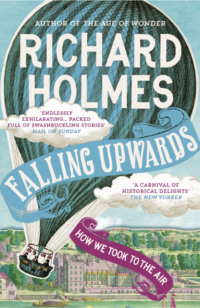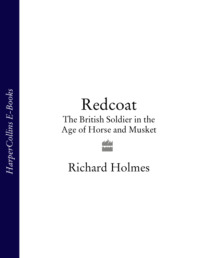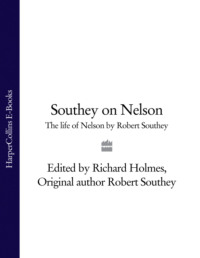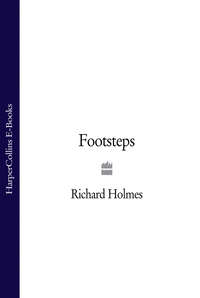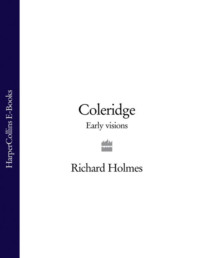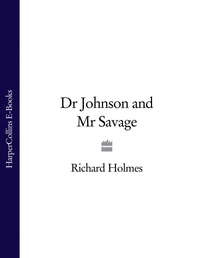
Полная версия
Sidetracks
The point is important for two reasons. First, because it suggests how the subject of Chatterton has always appealed to responses and judgements far deeper than mere literary taste. We encounter this again and again. To put it more sharply, it appeals to the recurrent need to idealize the image of others, and to interpret historical events and artistic achievements as the expression of something, by definition inexplicable, called ‘genius’. It appeals to our need to reassure ourselves with the past, and to see our own desires, and perhaps even our own faces, somehow magically canonized in the pale indistinct features of the wonderfully – but safely – dead. One has to be aware of that from the outset.
Second, it is – like Hazlitt’s actor comparison – suggestive of something that happened most powerfully and dramatically in Chatterton’s own mind.
2 ‘To the Garret quick he flies’
Chatterton was born in Bristol in November 1752 and he never seems to have got over it. He was never reconciled to his circumstances: always he was looking for some alternative place, or alternative age. Latterly, as for Rimbaud in Charleville, the capital city began to exercise an hypnotic attraction and he staked everything on getting there and taking it by storm.
But bred in Bristol’s mercenary cell
Condemned with want and penury to dwell,
What generous passion can refine my line?
Chatterton’s home was the small schoolhouse in Pyle Street, directly opposite the marvellous looming Gothic buttresses and tracery of St Mary Redcliff church. St Mary Redcliff dominated Pyle Street with its massive shadowy presence; morning and evening St Mary Redcliff bells would fill the rooms of the house. Chatterton’s father had been the schoolmaster of the Pyle Street free-school and also sexton of St Mary Redcliff. The schoolhouse and the church were both his territory, and they both became Chatterton’s. The father was by all accounts a curious man. He was a singer, and had sung officially in the Bristol Cathedral choir; but he also sang unofficially to himself on the long walks that he was noted for taking, and talked to himself as well. He was a collector and something of an antiquarian. He collected old coins and books and manuscripts, and when he became sexton of St Mary Redcliff he found a rich source of material in the hitherto neglected Muniment Room, with its many boxes and chests of papers, whose long slit window looked out over the top of the North Porch. Many of these ancient papers were transferred from the Muniment Room to the schoolhouse, and in the course of time to the attic room which was Chatterton’s. These papers were the only direct link that Chatterton had with his father, who died in the summer before he was born. Chatterton also had an elder sister, who had been born out of wedlock.
For a prodigy he was a solitary child and a slow one. At seven he was still unable to read. He dawdled about the schoolhouse, and about the aisles and tombs of St Mary Redcliff.
Thys is the manne of menne, the vision spoke,
Then belle for Evensonge my senses woke.
But there was already another side to his character. His sister, later Mrs Newton, recalled eight years after his death: ‘My brother very early discovered a thirst for pre-eminence. I remember, before he was five years old, he would always preside over his playmates as their master, and they his hired servants.’ The Victorian biographers tell the most winsome of the childhood anecdotes to illustrate that same ‘thirst for pre-eminence’. At the age of five he was apparently offered a Delft cup as a present to be decorated with ‘a lyon rampant’. But instead Chatterton asked that the picture should represent an angel with a trumpet. When asked why, he replied airily – ‘to blow his name about’. The story is nice, but may be apocryphal; the temperament it illustrates is certainly authentic. In a fatherless household, one is not surprised. A Bristol friend remembered him at a later stage, as a schoolboy and legal apprentice: ‘That vanity, and an inordinate thirst after praise, eminently distinguished Chatterton, all who knew him will readily admit. From a long and intimate acquaintance with him, I venture to assert, that from the date of his first poetical attempt, until the final period of his departure from Bristol, he never wrote any piece, however trifling in its nature, and even unworthy of himself, but he first committed it to every acquaintance he met, indiscriminately, as wishing to derive applause from productions which I am assured, were he now living, he would be heartily ashamed of …’ (Letter from Mr Thistlethwaite to Dr Milles). There is a good deal of personal sourness and pique in this statement, and as to Chatterton communicating all his poems it is simply incorrect. But as a description of Chatterton’s impression on friends and everyday acquaintances, the touchiness, the arrogance, the self-importance, the ‘eagerness of applause even to an extreme’, it has the ring of truth.
Perhaps the most convincing and also the most amusing evidence comes from a distant relative of Chatterton’s, a certain Mrs Ballance, who was lodged in the same house as Chatterton when he first came to London. As a relation, she obviously tried to be neighbourly. She recalled with exasperation, ‘he was as proud as Lucifer. He very soon quarrelled with her for calling him “Cousin Tommy”, and asked her if she had ever heard of a poet’s being called Tommy. But she assured him she knew nothing of poets and only wished he would not set up for a Gentleman.’ Mrs Ballance added a pathetic and very human note: ‘He frequently said he should settle the nation before he had done; but how could she think her poor cousin Tommy was so great a man as she now finds he was? His mother should have written word of his greatness, and then, to be sure, she would have humoured the gentleman accordingly.’
But if Chatterton’s character was manifest from the start, his capabilities were not. The first important moment seems to have been when he began to read. The way any primary skill is first exercised – swimming, riding, reading – often has a decisive effect on its subsequent development. Chatterton began to read only very gradually, and then in a curious and highly significant fashion. Mrs Newton, his sister, again recalled: ‘He was dull in learning, not knowing many letters at four years old, and always objected to read in a small book. He learnt the alphabet from an old Folio music-book of my father’s, my mother was then tearing up for waste paper: the capitals at the beginning of the verses, I assisted in teaching him.’ The importance of this earliest reading material has never been fully realized.
From the very start, literature and the medieval legacy of the St Mary Redcliff papers were identified in Chatterton’s mind. And not only at an intellectual level. For Chatterton’s contact with this special past, so inextricably involved with both his dead father and the earlier inhabitants, writers and artists of St Mary Redcliff, had from the beginning a solid material presence of vellum and parchment scraps which filled the little schoolhouse with their dust and oily odour and resilient crackling touch. They were a vivid familiar presence, totally uninvested with the sacred and scholarly aura which museums, glass cases, and academic pincenez normally impart to such things. The Chatterton family were at times almost literally ankle-deep in the medieval past. We know that the mother quite casually used them for knitting patterns, or for ‘waste paper’ torn up presumably for fires or cleaning; and that many of the schoolhouse books were actually covered by these papers in the form of makeshift dust jackets. It was the large illuminated capitals on some of these sheets which first caught the young Chatterton’s eye. Gothic and medieval scripts were his earliest acquaintance. He read the tomb inscriptions and brasses as another child reads specially edited fairy tales. His first solid piece of reading was the bristling Germanic-Gothic pages of the family’s Black Letter Bible. In short, Chatterton came to literary consciousness in another world. It was Bristol, but it was late-medieval Bristol. It was the Bristol of the men like William Canynges who helped to rebuild and restore St Mary Redcliff, and of the late-medieval scholar-poets whom great men such as Canynges befriended and patronized, acting almost as a father might have done. It was above all (as it turned out), the Bristol of a brilliant poet-monk whose first name was oddly enough the same as Chatterton’s; an admirer of Chaucer, an admirer of St Mary Redcliff, an intimate friend of the fatherly William Canynges, the brilliant star of the whole company of talented poets. This poet-monk’s name was Thomas Rowley. But Thomas Rowley never existed. Only in Thomas Chatterton’s head. From a single inscription on a tomb, Chatterton was to create this man’s life, his letters, his poems, his ballades, his Tragedies, his most intimate concerns with the problems of living and literature. Thomas Rowley was everything that Thomas Chatterton desired to be. And in the most real and most disturbing sense, Thomas Rowley was Thomas Chatterton.
At the age of seventeen, just before he left Bristol for London, Chatterton was to write one of his most outlandish and ambivalent documents, a Will. In it, he addressed his stupid and ungenerous patrons of reality, and to one of them wrote this:
Thy friendship never could be dear to me;
Since all I am is opposite to thee.
If ever obligated to thy purse
Rowley discharges all; my first chief curse!
For had I never known the antique lore
I ne’er had ventur’d from my peaceful shore,
To be the wreck of promises and hopes,
A Boy of Learning, and a Bard of Tropes;
But happy in my humble sphere had mov’d
Untroubled, unsuspected, unbelov’d.
Of course, it asserts nothing except Rowley’s primary importance and responsibility. The whole piece is shot through with a bitter ironic flare characteristic of Chatterton. Those last three epithets are much more curious than they seem at first sight; and the idea that Chatterton would ever conceivably have been ‘happy in his humble sphere’ is laughable. Chatterton must have laughed as he wrote it. But if so, the laughter must have sounded harsh.
The creation of Rowley is one of the most extraordinary events in English literature. It is not easily accounted for. A body of scholars stood out against it for some thirty years after Chatterton’s death. Chatterton’s own acquaintances – who invariably and incorrectly thought that they were his intimates, a notable point – were adamant almost to a man. One Mr T. Cary writing in 1776: ‘Not having any taste for ancient poetry, I do not recollect his ever having shewn them to me; but that he often mentioned them, at an age, when (great as his capacity was) I am convinced he was incapable of writing them himself, I am very clear in, and confess it to be astonishing, how any person, knowing these circumstances, can entertain even a shadow of a doubt of their being the works of Rowley.’ (Interestingly, Cary then adds a sentence which reveals in a flash his deep but unconscious sense of the ambiguity of identity in Chatterton: ‘Of this I am very certain, that if they are not Rowley’s, they are not Chatterton’s.’) Even in this present age, when every sixth-former is drilled with Ezra Pound’s idea of the poetic persona and T. S. Eliot’s concept of impersonality and the ‘objective correlative’, the Rowley–Chatterton relationship remains as extraordinary and mysterious as ever. Though W. P. Ker in The Cambridge History of English Literature has a perceptive observation: ‘Nothing in Chatterton’s life is more wonderful than his impersonality; he does not make poetry out of his pains or sorrows, and when he is composing verse, he seems to have escaped from himself.’ That last phrase can be taken more literally than Ker meant.
The crucial fact about the creation of Rowley is that Rowley grew as Chatterton grew. In 1760, when Chatterton was eight, he was sent to board at Colston Hall, a local charity school, and he remained there until he was fifteen. Colston served bad food and bad education. Its curriculum ran to the Three Rs only, with nothing remotely scientific or classical. It is said that owing to the combination of too much free time and too little free space, the pupils usually slept for ten or twelve hours a day, and this generally with two or three of them to a single bed. It makes one speculate on what strange world of half-waking companionship this unusual situation fostered. The single most suggestive fact, however, concerns a tiny detail of the Colston Hall uniform which went unnoticed for almost a century. The Colston Hall charity boys were required to wear a blue gowned overall belted at the waist, and to have their hair cut short and tonsured, like so many little novices in a monastery. The adolescent Chatterton must indeed have felt a curiously vivid and physical identity with his poet-monk Thomas Rowley: a presence as yet unnamed, but nevertheless swiftly growing now from its childhood origins in the Muniment Room with its high slit windows above the North Porch of St Mary Redcliff.
One of Chatterton’s earlier recorded poems has a striking bearing on the psychology of this long moment of wonderful but also sinister gestation. It was written in 1763 when he was eleven. It is not a so-called Rowley poem, but his first excursion into the snappy, efficient, satirical style currently fashionable: all couplets and nudges. From the start, Chatterton could turn this out effortlessly. The poem is called ‘Sly Dick’. It purports to tell of someone who receives a visitation from the Devil during the night, which informs him how he may make his fortune – dishonestly of course. How conscious Chatterton was of the underlying drama of this little piece of doggerel – particularly in its terms of night-visitation, temptation, hidden location of fortune, and secretive manner of exploitation – the reader may judge for himself.
Sharp was the frost, the wind was high
And sparkling Stars bedeckt the Sky,
Sly Dick in arts of cunning skill’d,
Whose Rapine all his pockets fill’d,
Had laid him down to take his rest
And soothe with sleep his anxious breast.
‘Twas thus a dark infernal sprite
A native of the blackest Night,
Portending mischief to devise
Upon Sly Dick he cast his eyes;
Then strait descends the infernal sprite,
And in his chamber does alight:
In vision he before him stands,
And his attention he commands.
Thus spake the sprite – Hearken my friend,
And to my counsels now attend.
Within the Garret’s spacious dome
There lies a well stor’d wealthy room.
Well stor’d with cloth and stockings too,
Which I suppose will do for you …
When in the morn with thoughts erect
Sly Dick did on his dream reflect,
Why faith, thinks he, ‘tis something too,
It might – perhaps – it might – be true
I’ll go and see – away he hies,
And to the Garret quick he flies,
Enters the room, cuts up the clothes
And after that reeves up the hose:
Then of the cloth he purses made,
Purses to hold his filching trade.
The true identity of the ‘Garret’s spacious dome’, and the store of cloth which he ‘cuts up’ to make his fortune, flash up at one instantly. They are of course the Muniment Room and the ancient papers within it. Without leaning on this little piece too much, it seems likely that the eleven-year-old Chatterton at some level or other was powerfully aware of the peculiar forces now gathering in and around him ready for his disposal. They had not yet taken the shape of Rowley. But already he was deeply divided as to whether it would be for the best or for the worst. His second early poem, ‘Apostate Will’, about a Methodist preacher who turns High Anglican when a convenient place is offered, contains a similar sense of a ‘filching trade’, and also that characteristic feeling of ambivalent identity which is so marked in Chatterton and the nature of his creative gift. (Both poems also have strong elements of childish plagiarism, relating to fables by John Gay.)
Strictly speaking, this is to anticipate. The first piece of ‘medieval’ writing was not actually made public by Chatterton until he was fifteen and had left school; and then, in answer to inquiries, he was to say – defending his ‘originals’ from first to last – that he had only recently discovered such great treasures in his mother’s house. But it seems unquestionable that Rowley and the world of Rowley’s fifteenth-century Bristol had been maturing long and steadily in Chatterton’s mind and imagination. Colston Hall, built on the site of the medieval Priory of St Augustine’s Back, was always remembered favourably by him in this connection. In his ‘Will’ he adopts the satiric medieval practice, used notably by François Villon, of bequeathing his better qualities (such as Modesty) to the various public figures who are most in need of them. His ‘disinterestedness’ is bequeathed as follows, in a wry passage which connects Rowley and Colston Hall: ‘Item … To Bristol all my spirit and disinterestedness, parcels of goods unknown on her quay since the days of Canning and Rowley! ‘Tis true a charitable Gentleman, one Mr Colston, smuggled a considerable quantity of it, but it being proved that he was Papist, the Worshipful Society of Aldermen endeavoured to throttle him with the Oath of Allegiance.’ Chatterton rarely had anything good to say for a modern institution of Bristol, and when he does, it is remarkable.
Colston served him in two ways. First by providing an embryo group of friends, or at least acquaintances, in whom he could begin to satisfy his need for notice and applause. And second, in failing to weigh his mind down with any academic material of the depressing kind which such establishments are formally designed to provide, but rather allowing him freedom to pursue his own private and increasingly idiosyncratic reading and research. His sister, Mrs Newton: ‘About his tenth year he began (with the trifle my mother allowed him for pocket-money) to hire books from the circulating library … Between his eleventh and twelfth year, he wrote a catalogue of the books he had read, to the number of seventy: History and Divinity were the chief subjects. At twelve he was confirmed by the Bishop … Soon after this, in the week he was door-keeper (at Colston), he made some verses on the last day, I think about eighteen lines; paraphrased the ninth chapter of Job; and not long after, some chapters in Isaiah. He had been gloomy from the time he began to learn, but we remarked he was more cheerful after he began to write poetry. Some satirical pieces we saw soon after.’ Now he was started.
Chatterton left Colston some time in the winter of 1766, or the spring of 1767; at any rate when he had turned fourteen. Before that time had come, a number of events occurred whose significance was great but indirect. He formed a close friendship with a boy somewhat older than himself, Thomas Phillips. The relationship was to be tragically short, but Phillips was one of those invaluable personalities, a catalyst. A school-friend gave this typically portentous picture: ‘The poetical attempts of Phillips had excited a kind of literary emulation amongst the elder classes of the scholars; the love of fame animated their bosoms, and a variety of competitors appeared to dispute the laurel with him.’ This helped; it was the first materialization of Chatterton’s company of poets. Related to it, the death of the brilliant contemporary satirist, Charles Churchill, who had gone to visit Wilkes (exiled in Boulogne on account of the notorious No. 45 of the North Briton), served to give the young writers both a literary and political martyr. Churchill died in 1764. In the following year there was a notable publishing event, the appearance in three duodecimo volumes of Percy’s celebrated Reliques of Ancient English Poetry. These certainly came into Chatterton’s hands, one of the primary texts of the Romantic revival. So the hidden medieval world was nourished as well.
When Chatterton left Colston, he was extremely lucky to be apprenticed to a Bristol attorney, John Lambert Esq. He took up the job in July 1767. It was a remarkable success for an ex-Colston boy; but in practice it involved mere clerical copying and drudgery, and Chatterton did not find himself occupied fully for more than two or three hours a day. He continued to haunt the circulating libraries; he took to walking certain young ladies on the green; and most important of all, he began to take old St Mary Redcliff papers and parchments with him to work. Friends referred to vague ‘copying’ and ‘transcribing’ processes. He covered many parchment scraps with his own version of medieval script. He became fascinated by architecture and heraldry and the business of family trees. These subjects also fascinated Thomas Rowley. For Rowley now existed.
After such a long gestation, things moved quickly. The main external events were as follows. In July 1768, the old bridge across the river Avon was replaced by a new one, and Chatterton, making his first of many bids for fame, sent a fictitious account of the opening of the original bridge, purporting to have been drawn from a medieval manuscript, to Felix Farley’s Journal. The Journal was the local Bristol magazine and gossip column, and the publication of his contribution soon brought two Bristol littérateurs, George Catcott and William Barrett, snuffling on to the young man’s trail. Catcott and Barrett are two wholly comic figures, part fools and part villains, who stumble through this period of Chatterton’s career as if Laurel and Hardy had tried to organize the Fourth Act of Hamlet. For the next eighteen months they pose as Chatterton’s patrons, lending him books and showing him off to their friends at numerous little soirées, while encouraging him to bring forth a stream of letters, ballads, elegies and dramatic poetry, all also purporting to be medieval: notably the work of the fifteenth-century writers who surrounded William Canynges in Bristol, and above all of the poet-monk and intimate of Canynges – Thomas Rowley. (Barrett was writing a History of Bristol, and for him Chatterton conveniently produced descriptions of medieval painting and architecture, grotesque family trees, and gorgeous examples of local heraldic devices – all spurious.)
One of the finest of the early Rowley productions was this fragment which praised St Mary Redcliff and its great restorer William Canynges. It is of particular interest in that it performs a strange transmutation of the ‘Sly Dick’ poem; it is a vision and a supernatural command, but this time the opposite of Satanic. Moreover, in using the same short four-stress line and rhyming couplets, it yet manages to produce a simplicity quite literally worlds away from ‘Sly Dick’s’ satiric jingle. ‘Onn Oure Ladies Chyrche’ by Thomas Rowley–
As on a hille one eve sittinge,
At oure Ladies Chyrche muche wonderinge,
The cunninge handieworke so fine
Han well nighe dazzeled mine eyne.
Quod I: some cunninge fairy hande
Yreer’d this chapelle in this lande;
Full well I wot, so fine a sighte
Was n’ere yreer’d of mortal wighte.
Quod Truth: thou lackest knowledgynge;
Thou forsooth ne wotteth of the thinge.
A Rev’rend Fadre, William Canynge hight [called]
Yreered up this chapelle bright;
And eke another in the Towne
Where glassie bubblinge Trymme doth roun.
Quod I: ne doubt for all he’s given
His soule will certes goe to heaven.
Yea, quod Truth, then go thou home
And see thou do as he hath done.
Quod I: I doubte, that can ne be,
I have ne gotten markes three.
Quod Truth: as thou hast got, give almes-deeds so:
Canynges and Gaunts could do ne moe.
This and many other small pieces, together with the brilliant narrative ballad ‘The Death of Sir Charles Bawdin’, the two poetic tragedies ‘Godwyn’ and especially ‘Æella’ (of which the famous and beautiful Minstrel’s Song is a mere chorus), and numerous Epistles, Prologues and Songs, were all accepted blandly and beamingly by Catcott and Barrett who never dreamed of looking a gift-horse let alone a prodigy in the mouth; they calmly accepted everything as genuine curios and antiquities pouring forth in a gratuitous flood at their feet, as if young Chatterton were the keeper of some magic casket of inexhaustible delights. It never seemed to cross their minds that beauty is the most terrible and merciless of masters. Mrs Newton: ‘He was introduced to Mr Barrett and Mr Catcott; his ambitions increased daily. His spirits were rather uneven, sometimes so gloom’d, that for many days together he would say but very little, and that by constraint. When in spirits, he would enjoy his rising fame; confident of advancements, he would promise my mother and me should be partakers of his success … About this time he wrote several satirical poems, one in the papers, on Mr Catcott’s putting the pewter plates in St Nicholas towers. He began to be universally known among the young men. He had many cap acquaintances, but I am confident few intimates.’ ‘Many cap acquaintances’ is apt. The role of the satirical poetry was now becoming obvious; it kept him on balance in a situation fluctuating violently between tragedy and farce which only an English provincial city with its mixture of greed, pomposity and eloquent mediocrity could ever have provided.



